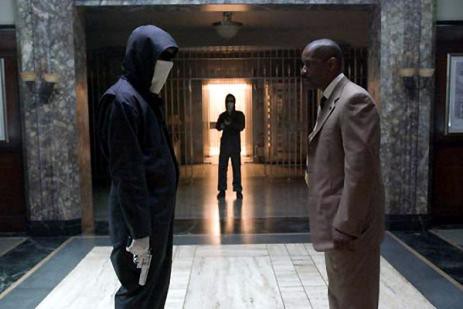When The Banks Close

Good morning! Unless you’re in Greece. What is going on over there? Mashable offers a straightforward explainer:
The country has been negotiating for five months to get the final bailout payment of $8.1 billion, which it needs to survive. The European Commission requires Greece to make major cuts to its budget before it can get the final payment. Greece, in turn, doesn’t want to make the spending cuts, which it believes will hurt Greek retirees and weaken its social services. …
The problem is that both sides believe they are completely correct.
European Union finance ministers believe Greece is spending too much and taxing too little, and they don’t want other countries to keep bailing the country out. They also believe they have the right to dictate terms to Greece because the ECB has to step in with more money from European banks and taxpayers every time Greece struggles.
Greek politicians, in turn, dislike the strict conditions and the EU for telling them what to do with their economy, so they have rebelled against the request.
Trouble is, Greek politicians don’t seem to have an alternative plan besides asking for more money and/or time. So here we are, because, as Mashable puts it, “Greece really is broke”:
Greece said it will close its banks on Monday after a wild weekend in which worried Greeks lined up at ATMs to withdraw their savings, and European banks said they would not extend the country’s economic bailout past Tuesday. …
Greece could easily pay the IMF loan with the last, $8.1 billion chunk of its bailout money, which is also, in part from the IMF. (Yes, Greece is paying back the IMF with the IMF’s own money). But then Greece would have to cut its budget, which would be politically unpopular.
The choice before Greece is: insolvency or political unrest.
To delay the inevitable financial disaster, Greece has put its financial system on hiatus. Its banks will close Monday — and possibly for the next week — while withdrawals from ATMs will be capped. The Athens Stock Exchange will also close on Monday.
So, uh, on a practical level, what happens when the banks close? Business Insider reports:
it’s increasingly difficult for the Greek population to get cash.
Greece’s transportation minister, Christos Spirtzis, has announced that buses, trams, trolley-buses, and the Athens metro will not require fares until next week. The Times reports that fares are usually about €1.20 ($1.33), and the decision will cost the government about €4 million ($4.44 million) this week.
The decision only covers greater Athens, where about 40% of Greece’s population lives. The government cannot waive fares in its next-largest city, Thessaloniki, because its transportation system is not fully run by the government, according to the Times.
Sounds heavenly. I still remember when I was visiting Portland and someone let me know that, in the main sectors of downtown, public transportation is free. My eyes got so shiny and my heart so full that I nearly fell off the tram.
Still, presumably, Portland is in better financial shape than Athens right now; it can make such decisions from a place of generosity rather than scarcity. A free train ride is a less fun when you understand its sobering implications for the broader economy.
What are the longer term ramifications? How will the nation function without ready access to cash? Will people begin bartering or will they turn to lines of credit and IOUs?
Next up for Greece: a nationwide referendum on austerity vs. default.
A “Yes” vote means that Greece will continue the grinding era of austerity that has caused so much pain to its citizens over the last five years, in exchange for keeping the euro currency and the monetary stability it provides.
A “No” vote almost certainly means that the country will walk away from the euro and create its own currency (which will surely devalue sharply), bringing financial chaos in the near term but creating the possibility of a rebound in the medium term as the country becomes more competitive with its devalued currency.
The Greek government, led by Alexis Tsipras, disputes this framing, and argues that Greece could in fact reject the creditors’ offer to extend the bailout program while sticking with the euro. Events over the weekend show how untenable that is.
It will be interesting to see how direct democracy does, since representational democracy doesn’t seem to have accomplished much. But as the Times points out, the populace only gets to vote for one of two bad choices. Not a lot to be cheerful about in that.
Greece is far from the only nation in financial peril right now. Perhaps you’ve read about Puerto Rico?
Puerto Rico’s economy has been in hot water for years, due to government overspending, high energy costs and dependence on debt. Now, the U.S. territory is dangerously close to default.
In an attempt to avoid a missed payment, the Puerto Rican government is now seeking concessions from its creditors, including deferring some debt payments, or extending the repayment schedule. It seems no one will emerge from this crisis unscathed: Garcia Padilla is now urging the island’s creditors to “share the sacrifices.”
Support The Billfold
The Billfold continues to exist thanks to support from our readers. Help us continue to do our work by making a monthly pledge on Patreon or a one-time-only contribution through PayPal.
Comments